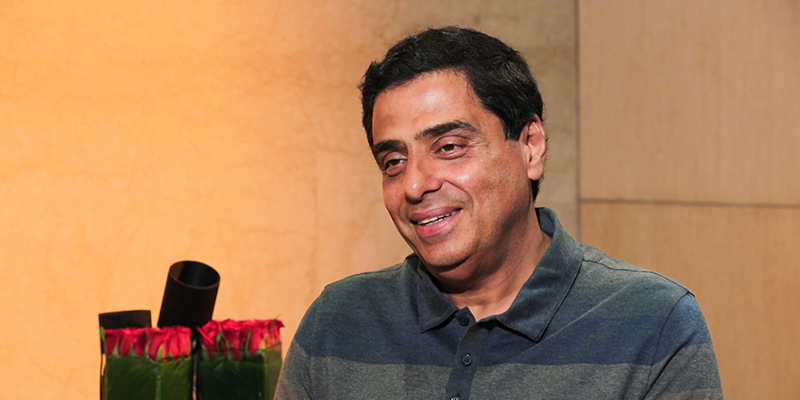One of the very few good things that came out of the coronavirus-induced lockdown has been the advancement in education, which had been too archaic for too long. Forced to lean on online resources to continue classes, the education sector is seeing a very intrinsic change in consumer behaviour, which perhaps no other sector has over the last two months
As adoption of online resources in education becomes commonplace, it is but natural to be bullish on the industry, mainly since the (forced) transformation is helping break through the psychological barriers to technology the older generation typically has.
Still, one wonders what the way forward for the online education sector looks like, especially as lockdown restrictions ease, and things return to “normal” – whatever that may be.
That was one the questions YourStory posed to Gaurav Munjal, CEO and Co-founder of Unacademy, a Facebook and Sequoia-funded edtech startup.
Started as a YouTube channel on education and learning in 2010, Unacademy was officially launched in 2015. The startup has raised close to $200 million to date, and seen massive growth over the last two months due to the coronavirus outbreak.
On the flip side, the travel and hospitality industry has taken a potentially life-ending blow due to movement restrictions and airspace closedowns that the lockdown triggered around the world.
YourStory caught up with India’s largest travel booking company MakeMyTrip’s Founder Deep Kalra, to better understand the impact of the coronavirus on the sector, and what the future of travel might look like.

Deep Kalra - Founder, MakeMyTrip
MMT is a particularly interesting company to look to during this time because over the last two decades, the Gurugram-based company has witnessed and survived many global catastrophes: the dot-com bust, the 9/11 attacks, and the global financial crisis of 2007-08, to name a few. But the challenge it faces today due to the pandemic is gargantuan, and will perhaps be the toughest fight the company has faced.
Even as flights and other transportation slowly resume operations, directed by the government, the travel industry cannot sleep easy just yet.
But babies can!, thanks to Aardra Kannan Ambili, who founded RIoT, a startup that leverages artificial intelligence (AI) to build highly accurate respiration monitoring systems. The startup's first product – Raybaby – a non-contact sleep and breathing monitor for babies. The device has won several awards at CES and ABC Kids Expo.

Recently, in light of the coronavirus, the startup built a non-contact, wi-fi enabled, affordable respiration rate monitor, that can run as a mini ICU unit. The device has been used by coronavirus patients, and helped reduce the burden on healthcare centres.
What encouraged Aardra to think about building her own business and use technology to solve problems were her parents – both innovative entrepreneurs in their own right.
Another person who has inspired generations of entrepreneurs is Ronnie Screwvala – businessman extraordinaire, philanthropist, and a media veteran who hardly needs an introduction.
Not many know that it was Ronnie who sold UTV to Disney for a billion dollars, tried several businesses before he became a celebrated businessman. After the UTV sale in 2012, he went on to start up again, launching an online education platform upGrad with Co-founder Mayank Kumar in July 2015.

Ronnie Screwvala
In an interview with YourStory, Ronnie said he feels an entrepreneur should never be held back by mistakes as that won’t help him or her progress. Failures matter because the learnings lead to success later. He also says that an entrepreneur should be self-confident and have self-conviction, but “not ego”, which is “a waste of time”.
“I have met a lot of people in their mid-thirties and mid-forties who want to “try” entrepreneurship. I tell them not to think about trying because it is not like going out for a short walk; entrepreneurship is a long journey. You will fail 100 percent if you think two years will help you succeed as an entrepreneur,” he says.
Expending your blood and sweat is the easiest sacrifice entrepreneurship can ask of someone – there’s so much more that goes into making a business work. And if it’s difficult for those who have all the means they require at their disposal, as typically seen in metro cities, one can only imagine how startups in small towns manage keeping their heads above water – especially now during the coronavirus pandemic.
YourStory spoke to several startups in small towns to understand how they’re faring right now, and what Lockdown 4.0 means for them.
While operational challenges are still considerable, non-metro startups managed to stand tall during the height of the lockdown in India, having gotten used to dealing with ‘challenges’ for some time now.
But, as Prime Minister Narendra Modi said in his address to the nation, ‘Lockdown 4.0’ is going to be different from the previous three phases.
The revised guidelines have allowed for the resumption of app-based cab services, permitted shops, markets and commercial establishments to function (except those in malls), and eased curbs on private offices that were previously allowed to function with 33 percent staff strength. All of these should make life a little easier for startups all across the country, not just in the non-metro cities, but cash flow constraints could cause some turbulence.
From small towns in India, all the way to another part of the world, San Francisco-headquartered Postman has created monumental ripples in the tech industry, helping it transition its software approach from code-first to API-first.

After 2010, when the importance of APIs was just starting to be realised in the tech world, the tools for API development were still in their infancy, and managing them was a challenge. Specifically, there seemed to be plenty of communication issues with different teams, making the tracking of API updates a hassle.
Abhinav Asthana, CEO and Co-founder of Postman, built the platform primarily to solve this issue for himself, and found that it worked well enough. He then decided to put it up on Chrome Web Store as an open-source REST client, and the app quickly gained popularity.
This gave him and his co-founders the necessary push to take Postman up full time. Abhinav officially set up Postman in October 2014 with Abhijit Kane and Ankit Sobti, and launched Postman as a product in November 2015.
(Edited by Aparajita Saxena)
Want to make your startup journey smooth? YS Education brings a comprehensive Funding and Startup Course. Learn from India's top investors and entrepreneurs. Click here to know more.
Link : https://yourstory.com/2020/05/industry-behemoths-unacademy-ronnie-screwvala-deep-kalra-startups-coronavirus
Author :- Vishal Krishna ( )
May 24, 2020 at 03:15PM
YourStory




